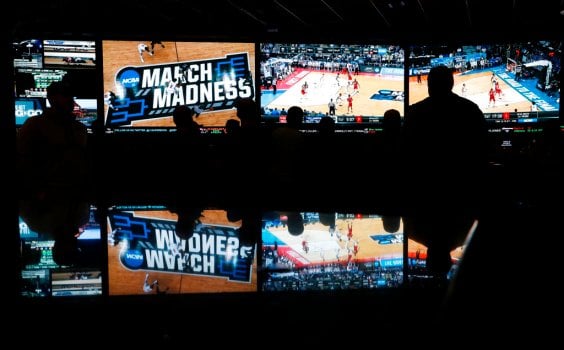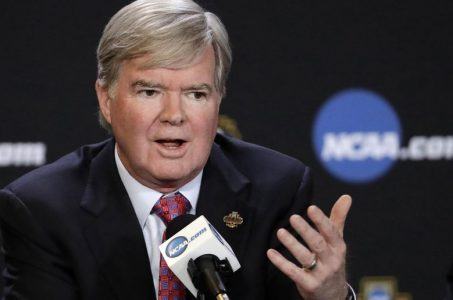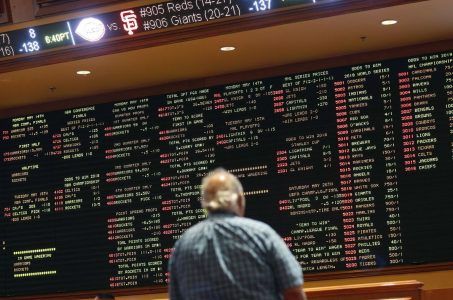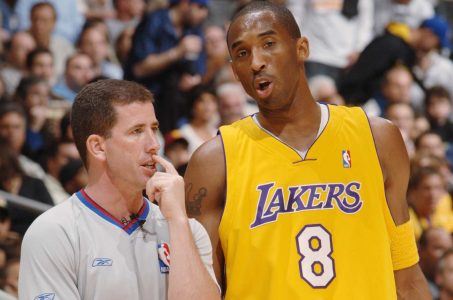One in Two Americans Favor Legal US Sports Betting, University Poll Finds
Posted on: May 18, 2018, 04:00h.
Last updated on: May 18, 2018, 02:06h.
The longstanding federal sports betting ban known as PASPA was repealed on Monday by the Supreme Court of the United States (SCOTUS). That paves the way for states to pass their own sports wagering laws, and according to a new poll, many Americans support doing exactly that.

The Court issued an opinion that went against the Professional and Amateur Sports Protection Act (PASPA) of 1992. The 6-3 majority decision ruled that the sports betting ban violated anti-commandeering interpretations of the Tenth Amendment.
When passed 26 years ago, PASPA provided exceptions to Nevada, Montana, Oregon, and Delaware, as those four states had earlier passed individual laws governing sports betting. SCOTUS determined this week that Congress cannot require 46 states to adhere to regulations that do not apply to four others.
Fairleigh Dickinson University’s Public Mind Poll asked 1,001 random responders, “Currently, betting on sports like football and basketball games is legal only in Nevada, Oregon, Delaware, and Montana. Do you favor or oppose changing the law to allow people to place bets on sports in all states?”
Fifty percent of adults expressed support for sports betting legalization, while just 37 percent said they were opposed.
The university says the margin of sampling error is +/- 3.9 percent. It should be noted that the poll was conducted before the Supreme Court issued its PASPA opinion on May 14.
Poll Specifics
Males support regulated sports betting more than females. According to the poll, 60 percent of male adults favor laws permitting wagering on sports, while only 40 percent of women lent their approval.
Supporters said gambling on sporting events is already occurring throughout the country, and cited new tax revenue for states and increased excitement towards watching games as reasons to legalize betting.
Opponents expressed concerns regarding a potential increase in problem gambling, fears that legal sports wagering might fuel organized crime (which has, interestingly, often been used an impetus behind legalizing sports betting, the thought being it would reduce underground involvement), and apprehensions that sports could become corrupt and the integrity of outcomes jeopardized.
“Americans take a moral or practical approach to sports betting,” Fairleigh Dickinson University political science professor Krista Jenkins explained.
“Those who oppose it are worried about its effects on society. Others want to benefit from the money that is already flowing through illegal wagering,” Jenkins detailed.
No Love for Integrity Fees
Of those opposed, 39 percent said legalizing sports betting “changes the expectation that the event or game is fair.” The NBA and MLB have both proposed receiving a cut of the money wagered on their games, which would be used to cover added expenses related to monitoring betting lines for suspicious activity.
The earmarks, or so-called “integrity fees,” have garnered little public support, however.
Just 32 percent say they approve of their state “sharing some of the tax revenue with the teams,” while 62 percent said they are opposed. And to be clear, the integrity fees proposed by the NBA and MLB are not percentages based on net win, but on gross handle.
NBA Commissioner Adam Silver has suggested the league take one percent of all money bet on his league’s games. Oddsmakers say that would greatly hurt business.
According to the UNLV Center for Gaming Research, overall casino win percentage on sports betting since 1984 is 5.52 percent.
Related News Articles
Most Popular
Las Vegas Overstated F1 Race’s Vegas Impact — Report
Vegas Strip Clubs Wrestle in Court Over Animal Names
Most Commented
-
End of the Line for Las Vegas Monorail
— April 5, 2024 — 90 Comments -
Mega Millions Reportedly Mulling Substantial Ticket Price Increase
— April 16, 2024 — 6 Comments -
Nearly Abandoned Mall Outside Vegas Soon to Have Only One Tenant
— March 12, 2024 — 5 Comments -
Long Island Casino Opponents Love New York Licensing Delays
— March 27, 2024 — 5 Comments
















No comments yet